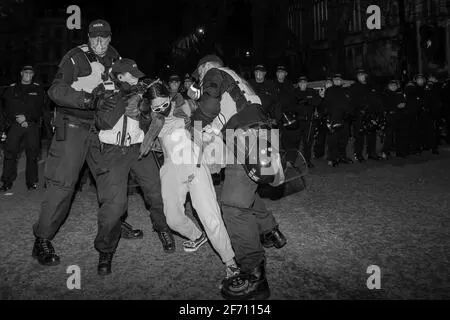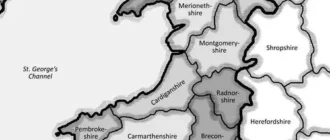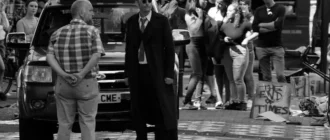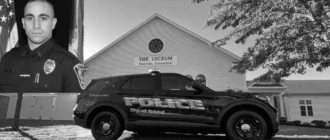The Police, Crime, Sentencing & Courts Bill has provoked a riot in Bristol and the arrest of 19 people. The protest began peacefully, but as the night wore on, the mood changed. Some demonstrators started throwing stones, set a police station on fire, and vandalized the roads. They also scrawled “kill the bill” across the pavement. The protest was so violent that smoke billowed into the sky. Some rioters even defecated at the feet of police officers. Andy Marsh, the police chief in Bristol, expressed concern that these scenes could be repeated in other cities.
Police, Crime, Sentencing & Courts Bill
The Police, Crime, Sentencing & courts Bill being protested in Bristol is a controversial piece of legislation. It aims to improve police response to protests and balance protesters’ and public rights. The Bill will give police more power to manage disruptive protests and will dedicate more police resources to keeping the public safe.
The proposed Bill has already been subject to demonstrations in the UK, with several groups in Bristol calling for it to be stopped. On March 21, a rally called ‘Kill the Bill’ turned violent, with rioters setting police vans on fire. The Home Secretary condemned the riot, saying it was “thuggery and disorder by a minority.” Despite the opposition to the legislation, the Home Office has said the Bill contains crucial reforms and measures that will improve the lives of ordinary people.
The Bill is a 300-page bill that addresses many issues of human rights. Women’s rights activists are particularly concerned about the legislation. It would end the policy of early release for prisoners, increase the severity of prison sentences and criminalize harassment. In addition, the Bill would give police more power to regulate protests and ban unauthorized encampments.
The new law also contains changes to the law on bail. It aims to make it harder for criminals to escape from prison. It would also increase the maximum sentence for assaulting an emergency worker. It could also impose restrictions on serving and retired police officers. Furthermore, the proposed legislation would extend the powers of judges to make life sentences for those who commit crimes against children.
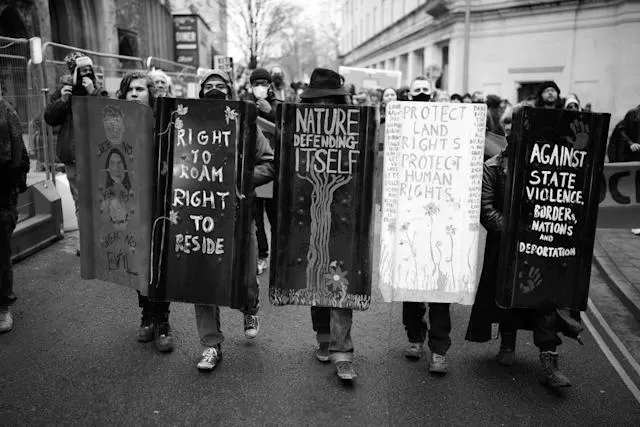
The Bill is widely condemned for its vague language. It would be illegal for a protest to cause “serious annoyance.” Moreover, it would allow the police to shut down any objection. It would also make the state punish anyone who breaks the law. Opponents of the new legislation say that it places “draconian restrictions” on people’s fundamental rights. It would also introduce harsh new sentences for protesters who breach the law.
A public space protection order would allow the Home Secretary to designate a ‘controlled area’ outside Parliament. With this power, he could protect essential services such as schools and vaccination.
Four rioters killed in bristol riots
The “Kill the Bill” protest has caused violent unrest in Bristol, England. Protesters have been angry about a new bill restricting demonstrations and giving police new powers. The March began peacefully, but the mood soon turned violent. Some protesters threw rocks at police and set their vehicles alight. Others defaced roads and vandalized the police station. Police said the scene was chaotic and feared the violence would spread to other cities.
The police stepped in to calm the crowds, but the demonstrations continued throughout the day. Protesters held speeches to the public, which eventually reached hundreds of people. A rally continued into the evening, despite police trampling on flowers laid by protesters in tribute to Sarah Everard. Police officers have also been assaulted.
The protesters also attacked the police station, setting up patrol cars and setting the building on fire. As a result, 62 people were injured, including protesters. At least four were arrested, and 61 more were charged with various crimes. In total, fourteen rioters were sentenced to prison. Another 18 people are scheduled for trial in the next five months. A protester was bitten by a police dog, while another was struck multiple times with police batons.
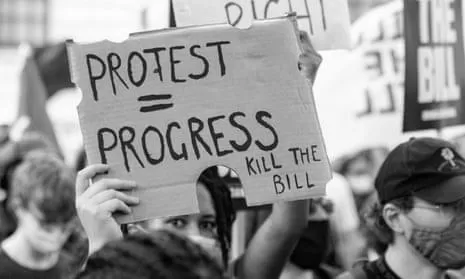
Two more people have admitted to crimes related to the Bristol riots. Five men and a woman have already been jailed for violent disorder. Three others have been found guilty of assaulting police officers and destroying police property.
The government is investigating the Bristol riots and the violence. A cross-party inquiry into the policing of subsequent protests found excessive force from police officers, and some witnesses have even labeled the policing as revenge. A Bristol mayor has warned that using violence would make it harder to prevent the new law from becoming law and could endanger the vulnerable.
The four men charged with rioting in Bristol were jailed for their crimes. They were found guilty of throwing bottles and fireworks into the police line. The prosecution ruled that the rioters were guilty and must serve lengthy prison terms. The prosecution is considering charges against more than 20 people.
19 jailed for taking part in protests
Protesters in Bristol have been jailed following violent clashes during a demonstration against the Police, Crime, Sentencing, and Courts Bill. The seventh protest in the city attracted an estimated 150 people to the city center. Protesters marched past the police station, the Bearpit, and the Bridewell, before dispersing around 9 pm. The UK Prime Minister Boris Johnson said the demonstrations were “completely unacceptable.”
Demonstrators attacked the police outside Bridewell Police Station, where police were attempting to prevent the protesters from demonstrating. The demonstrators set fire to police vehicles and damaged the station. There were casualties on both sides, including one police officer. However, the Avon and Somerset Police have retracted a statement that stated he suffered a broken bone. At least four protesters have been charged with offenses, and 14 have been jailed. Another 18 are awaiting trial. The latest case involved Charly Pitman, who was found guilty of rioting at Bristol Crown Court and sentenced to three years in jail. Pitman had been in the front line of the protest and had smashed police helmets and shields.
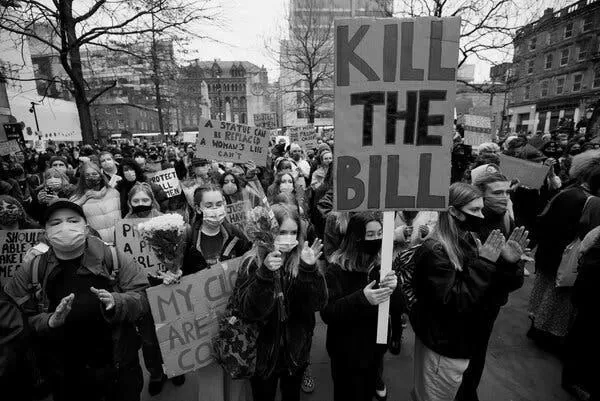
Mariella Dawson was also accused of inciting a riot at a protest in Bristol in June 2012. She was arrested and charged with criminal damage, screams, and violent disorder. She pleaded guilty to criminal damage but did not plead guilty to the riot charge. Her mother, Heidi Patrick, said that her daughter was not responsible for her actions and that she had been affected by seeing police violence toward protesters. Police aggressively restrained Mariella, and she was upset at the police’s actions.
A defense barrister, Russell Fraser, said the defendant was on medication for an emotionally unstable personality disorder. He argued for probation and psychiatric reports. The judge, James Patrick, agreed with both arguments. The protesters’ lawyers had argued that the Bill could lead to harsher sentences for protesters but that he would not take that approach.
The police said they arrested more than a dozen people during the protests. A Freedom of Information request reveals that ‘city leaders’ weren’t entirely independent. They were cc’d in correspondence regarding the wording of the letter. The CPS is now investigating these charges and will prosecute them.
Impact on marginalized groups
Last week, Bill’s passage in the House of Commons sparked a debate about its impact on marginalized groups. One aspect of the Bill, which has not been voted on yet, is its introduction of a new clause that prohibits protesters from damaging public monuments. The new clause responds to the recent protests in Bristol by Black Lives Matter.
The Police, Crime, Sentencing, and Courts Bill has several controversial features and has already been criticized for restricting the right to protest. This is particularly problematic for members of a marginalized group, including Roma, Gypsies, and Travellers. Despite these implications, the protests in Bristol have been peaceful, and there have been no clashes with the police. However, the police are closely monitoring the protests.
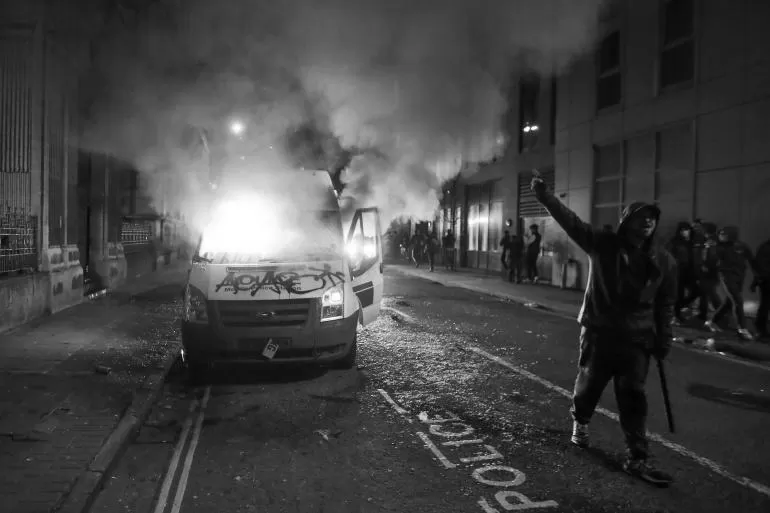
A report by the Good Law Project argues that the Bill could increase police powers during protests. The report warns that it may lead to further increased crime and a more comprehensive range of social problems. It also calls for the repeal of the protest sections of the Bill. This has long been the concern of rights groups, but the case of Jasmine Everard has brought it into the spotlight. The 33-year-old London woman vanished from a street in March and was found dead in a wooded area. The police officer who killed her was arrested and charged with her murder.
The protests in Bristol began peacefully, but as the night fell, the mood became more violent. Several demonstrators threw stones at police and set fire to their vehicles. Others vandalized a police station and etched words on the roadside. There was a large amount of smoke, and some people defecated on the ground.
As a result of the protest, 20 police officers were injured. Two officers suffered broken bones, and one had a punctured lung. The police have released images of ten suspects. They are due to release additional photos in the coming days.
